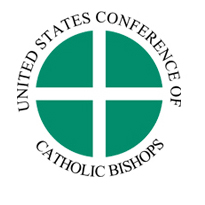Reconciliation
A Brief History:
In St. Paul’s Second Letter to the Corinthians he writes: “For indeed what I have forgiven…has been for you in the person of Christ” (2 Corinthians 2:10). The word used for “person/presence” is from the Greek word prosopon meaning: face, appearance, countenance, etc. In Christian theology, this Greek word became the language employed to speak about the personhood of the Father, Son, and Holy Spirit. This language of forgiving “in the prosopon” of Jesus Christ became how Christians spoke about the Sacrament of Reconciliation. The ordained priest – by the Sacrament of Holy Orders – is situated within the Church as one who makes visible the invisible presence of Jesus Christ in each of the Sacraments (except Matrimony, wherein the Bride and Groom represent Christ and His Bride the Church). In Reconciliation, the ordained makes present, in a very tangible, real, and concrete way, the presence of Christ. Christians practiced Confession from the beginning (cf. James 5:14-16). James’ letter speaks of presbyters (an early word for ministers ordained for specific functions in the Church) who administer Anointing of the Sick and hear the Confession of sins. To this day, Christians (though not all Protestant or other denominations) still speak of the presbyterate and presbyters as a technical term meaning: an ordained priest. Through the centuries, the public Sacramental Confession of penitents who fell into serious sin became more sensitive to the penitent’s privacy. The Sacrament of Reconciliation now rests between the penitent and the priest or bishop alone under the seal of secrecy (if the priest or bishop breaks the seal of secrecy, he is automatically excommunicated from the Church). Thus, the Sacrament of Reconciliation is the place the Holy Spirit inspired the Church of Jesus Christ to absolve Christians of serious, or mortal, sins. It is a beautiful Sacrament that offers each Christian a chance for renewal, hope, and forgiveness through Jesus Christ.
Confession: A How To Guide
Examination of Conscience
The Sacrament of Confession is not about beating yourself up, it is about opening your life to receive Jesus’ mercy. When Jesus saved a woman caught in adultery He told her, “Neither do I condemn you. Go, and from now on do not sin anymore” (John 8:11). Here we have the mercy of Christ in all its gentle, firmness. Jesus does not desire us to remain in sin, but, always calls us to new life (John 15:9-10). Mercy doesn’t leave us in our sinfulness, but raises us up into a renewal of discipleship. For this reason, a disposition of contrition (not self-condemnation) is helpful for a fruitful Confession. Contrition has a twofold meaning: (1) I’m sorry for my sin(s), and (2) I will endeavor to sin no more. This attitude takes time to foster in prayer, and it requires a relationship with the Trinity within a life of discipleship in the Church. Prayer, then, is the place to prepare for the Sacrament of Confession.
Step 1
Spend time in prayerful silence asking God the Father to reveal to you what sins He desires you to Confess. All serious sins must be Confessed for the Sacrament of Confession to be truly sacramental. By turning to God the Father, in Jesus Christ, by the Spirit, the preparation for the Sacrament already begins the journey into Communion with Christ and His Church. Do not move into a list-making activity, naming sin after sin without God in sight. Make this time of preparation about the love of God in your life making you new.
Step 2
After spending time in prayer asking God the Father, Son, and Spirit to help in preparation, reflectively ponder the time since your last Confession. What have been the sins you have committed since that last Confession. If it helps to write things down, of course, jot down notes. Now this: The Sacrament of Confession is not about gritty details or psycho-analysis; rather, it is a time to name the sins, speak to the habit of the sin (often, sometimes, seldom, etc.), and ask for forgiveness.
Step 3
After prayerfully asking the Trinity to help see your sins, taking time to name the sins and evaluate them, now take time to ask the Holy Spirit for help to overcome those sins. How is God inviting you to rely on His mercy to “sin no more”? You don’t need to be assured that you’ll “sin no more” to receive the Sacrament, but, have you asked for the grace to desire to overcome sin? This Step 3 is as important as the first two steps. This is the time in prayer to plan practical and honest strategies to overcome sin with God’s continued help.
Step 4
Conclude the time in prayer by meditating on the mercy of Jesus Christ. Here are some Scripture passages to help: Psalm 23, Isaiah 62:1-4, Ezekiel 36:24-28, Matthew 6:25-34, Mark 1:9-11, Luke 15:11-32, John 8:1-11. This is the time to ask for the grace to know and receive the love of Jesus Christ on a deeper level. It is Jesus’ love that summons you to the Sacrament. Allow His real and patient love to move your heart, touch your mind, and move you to confident hope.
Step 5
Go to Confession. Make sure to check the parish calendar for times of Confession. The Sacrament of Confession is also available by appointment with a priest, call 1 (330) 644-2225.
What Happens In Confession
We have assembled this “play-by-play” guide to help you understand the process of confession.
Receive the Sacrament
First Reconciliation
Children of the Parish prepare for first reconciliation in 2nd grade in the Parish School and Parish School of Religion.
First Reconciliation for Adults is part of the RCIA program. More information is available by contacting the Parish office at (330) 644-2225.
Confession Schedule
The Sacrament of Reconciliation is available weekly on the dates and times listed below.
Confession
St. Francis de Sales Parish ChurchThe Sacrament of Reconciliation
Confession
St. Francis de Sales Parish ChurchThe Sacrament of Reconciliation
Confession
St. Francis de Sales Parish ChurchThe Sacrament of Reconciliation
Confession
St. Francis de Sales Parish ChurchThe Sacrament of Reconciliation
Confession
St. Francis de Sales Parish ChurchThe Sacrament of Reconciliation
Confession
St. Francis de Sales Parish ChurchThe Sacrament of Reconciliation
Confession
St. Francis de Sales Parish ChurchThe Sacrament of Reconciliation
Confession
St. Francis de Sales Parish ChurchThe Sacrament of Reconciliation
Confession
St. Francis de Sales Parish ChurchThe Sacrament of Reconciliation
Confession
St. Francis de Sales Parish ChurchThe Sacrament of Reconciliation
Confession
St. Francis de Sales Parish ChurchThe Sacrament of Reconciliation
Confession
St. Francis de Sales Parish ChurchThe Sacrament of Reconciliation







